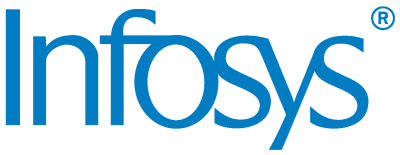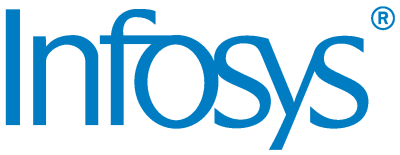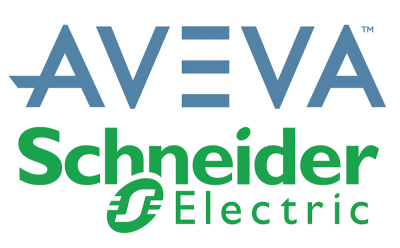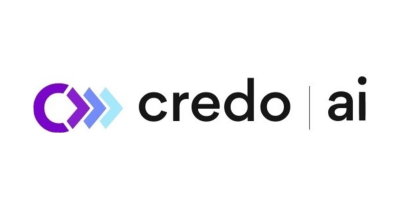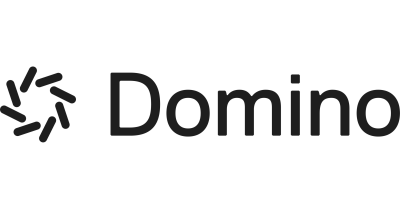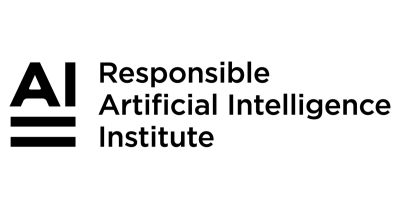Responsible AI Summit Main Conference Day 1 - Tuesday 23 September
Morning Plenary Session
8:00 am - 8:45 am
Registration & Breakfast
8:45 am - 9:00 am
Chairs Opening Remarks
Paul Dongha -
Head of Responsible AI & AI Strategy,
NatWest Group
9:00 am - 9:30 am
Opening Panel Discussion: From Principles to Progress: What’s Actually Changed in Responsible AI This Year?
Paul Dongha -
Head of Responsible AI & AI Strategy,
NatWest Group
JoAnn Stonier - Executive Vice President, Chief Data Officer, Mastercard
Sray Agarwal - Head of Responsible AI (EMEA / APAC), Infosys
Uthman Ali - Global Responsible AI Officer, bp
The pace of AI adoption - and regulation - has accelerated dramatically in the past 12 months. As global frameworks mature and generative AI moves from pilot to production, how are organisations adapting their responsible AI strategies in real time? This opening panel brings together senior leaders to reflect on the most meaningful shifts in the last year—from governance structures and tooling to regulatory readiness and internal culture.
· Responding to evolving AI regulations with practical, cross-functional governance updates
· Adapting RAI frameworks for the age of GenAI, foundation models, and real-time use cases
· Moving from awareness to accountability: What’s working, what’s not, and what’s next
Join us for a grounded look at how Responsible AI has moved from theory to action in the past year - and where the pressure points remain.
9:30 am - 10:00 am
Morning Plenary Keynote – Governing the Unpredictable: Responsible AI in the Age of Agents
Bharathi Vokkaliga Ganesh -
Head of Responsible AI Research & Development,
Infosys
Slot Reserved for Infosys, Talk Details to be Announced
10:00 am - 10:30 am
Morning Plenary Keynote – The Fundamentals of Enterprise AI Governance
Oliver Patel -
Head of Enterprise AI Governance,
AstraZeneca
10:30 am - 11:00 am
Morning Networking Coffee Break
Morning Streamed Sessions
Governance Stream A - Operationalizing AI Governance Frameworks
11:00 am - 11:30 am Presentation – Operationalizing Responsible AI in Energy Management and Industrial Automation: Schneider Electric's Practical Approach to AI Governance Ania Kaci - Global Leader for Responsible AI, Schneider ElectricSophie Miremadi - Vice President of Global Government Affairs and Public Policy, AVEVA
As organizations navigate the complex landscape of AI implementation, many struggle with moving beyond theoretical frameworks to practical governance solutions - especially in highly regulated industries like energy. Ania Kaci, Global Leader for Responsible AI at Schneider Electric, brings frontline expertise from building and scaling a cross-functional Responsible AI program across a multinational energy management and industrial automation leader.
Drawing from Schneider Electric's journey developing high-risk AI systems for energy management, predictive maintenance, and industrial automation, Ania will provide actionable insights on:
· Translating EU AI Act requirements into practical governance frameworks that align with sectoral regulations and business objectives
· Building effective AI risk assessment methodologies specifically designed for energy and industrial automation applications
· Creating a thriving Responsible AI community that extends beyond legal and technical teams to drive organization-wide AI literacy
· Balancing innovation with compliance across global operations and regulatory landscapes
· Leveraging AI for sustainability goals while addressing AI's own environmental impact
Governance Stream A - Operationalizing AI Governance Frameworks
11:35 am - 12:05 pm Panel Discussion – Centralized vs. Federated AI Governance: Finding the Right Balance Anastasia Zygmantovich - Global Data Science and Data Visualisation Director, ReckittPenny Jones - Responsible AI Lead, Zurich Insurance UK
Martin Woodward - Global Responsible AI Officer, Randstad
Cécile Prinsen - Expert Associate Partner, McKinsey & Company
When scaling AI governance across global organizations, leaders face a key decision: centralized or federated governance? This session will examine the advantages and challenges of both approaches, providing strategies to determine the optimal model for your organization’s size, complexity, and regulatory environment.
· Comparing centralized and federated governance models for global AI deployment.
· Building flexible frameworks that scale with organizational needs and regulations.
· Implementing governance structures that ensure consistency while allowing for local autonomy.
Governance Stream A - Operationalizing AI Governance Frameworks
12:10 pm - 12:40 pm Panel Discussion – The Evolution of AI Governance in the Enterprise Jeff Sizemore - Head of Advisory, CredoAISuzanne Brink - Group Head of Responsible AI, Lloyds Banking Group
Laura Perea Virgili - AI Risk Management in the Responsible AI office, PepsiCo
Ger Janssen - AI Ethics & Compliance Lead, Philips
As AI becomes embedded across every business function, the question of where AI governance belongs—both structurally and culturally—grows increasingly critical. This session will explore whether AI governance should stand as its own dedicated function, how organizations can elevate it as a priority, and how companies are resourcing and evolving their approaches.
The discussion will tackle key questions, including:
- Is AI governance well understood today?
- Why might companies need a dedicated AI governance team?
- What is the future of AI governance as a business function?
Governance Stream A - Operationalizing AI Governance Frameworks
12:45 pm - 1:15 pm Presentation – AI Safety Uthman Ali - Global Responsible AI Officer, bpTechnical Stream B - Observability, Evaluation & Testing of AI Systems
11:00 am - 11:30 am Presentation – From Foundation to Application: Measuring Language- and Culture-Specific Bias in LLM-Powered Applications Clara Higuera - Responsible AI Lead, BBVAHow do LLMs behave across different languages and cultural contexts - and what does this mean for fairness in real-world deployments? Clara, Responsible AI lead at BBVA, is translating her applied research on multilingual LLM bias into concrete methodologies to evaluate bias in LLM-powered applications. Her work focuses on identifying performance disparities across demographics and vulnerable groups that could lead to discriminatory outcomes.
- Using control and adversarial testing, as well as cultural probing, to surface hidden biases in LLM-powered applications
- Adapting open-domain bias metrics to enterprise-specific use cases and decision contexts
- Integrating fairness assessments into scalable pipelines with sociotechnical oversight
- Embedding bias evaluations into product workflows to support accountable, trustworthy, human-centered AI
Technical Stream B - Observability, Evaluation & Testing of AI Systems
11:30 am - 12:00 pm Presentation – From Governance to Assurance: Embedding Evidence Across the AI Lifecycle Chris Jefferson - CTO and Co-Founder, AdvaiGovernance frameworks often focus on principles, but lack the mechanisms to prove systems meet performance, security, and ethical requirements over time. This session explores how evidence-driven assurance can bridge that gap, providing measurable confidence from ideation to decommissioning. Advai will share how decision gates, lifecycle-aligned testing, and continuous monitoring create traceable evidence for risk-based decisions and regulatory readiness - without slowing innovation.
- Designing governance layers that integrate technical checkpoints from alpha to deployment
- Applying bias, sensitivity, and robustness thresholds to guide operational risk decisions
- Building evidence pipelines that feed audits, regulators, and adaptive monitoring systems
Understand how to operationalize Responsible AI through governance that’s measurable, auditable, and built for evolving risk landscapes.
Technical Stream B - Observability, Evaluation & Testing of AI Systems
12:10 pm - 12:40 pm Presentation: Engineering Talk to Data Building Semantic Foundations for Responsible AI at National Scale Masood Alam - Chief Data Architect, The Scottish GovernmentTechnical Stream B - Observability, Evaluation & Testing of AI Systems
12:45 pm - 1:15 pm Roundtable Discussion – Building Effective Monitoring Frameworks for Deployed AI Systems Andrea Cosentini - Head of Data Science & Responsible AI, Intesa Sanpaolo BankMartin Koder - AI Governance Lead, Swift
Monitoring AI systems post-deployment is key to ensuring their continued efficacy and safety. This session will focus on technical frameworks for tracking AI performance, detecting anomalies, and ensuring compliance with established governance practices. Learn about the tools that enable real-time monitoring and proactive management of deployed AI models.
· Learning about frameworks for continuous monitoring of AI system performance.
· Exploring anomaly detection tools to ensure AI systems perform as expected.
· Understanding compliance and governance monitoring for deployed AI.
Lunch
1:15 pm - 2:00 pm
Lunch in the Exhibition Hall: Network with your Peers
Afternoon Streamed Sessions
Governance Stream A - Regulatory Compliance & Risk Management
2:00 pm - 2:30 pm Presentation – AI Governance to create more smiles with every sip and every bite - How PepsiCo ensures Responsible AI Governance across the business Laura Perea Virgili - AI Risk Management in the Responsible AI office, PepsiCoPepsiCo is a Global leader in Convenient Foods and Beverages, with over 300,000 associates, a digital footprint spanning more than 200 markets, and an AI portfolio embedded across everything from precision agriculture and intelligent supply chains to consumer engagement and frontline sales. But how does a global, outside of big tech organization govern AI responsibly at scale?
In this session, Laura Perea will delve into PepsiCo's approach for Responsible AI while covering main pillars of our RAI framework, lessons learned and current challenges to adapt to the fast-paced technology evolution.
Governance Stream A - Regulatory Compliance & Risk Management
2:35 pm - 3:05 pm Presentation – From Burden to Breakthrough: Lessons in Making AI Governance Work at Scale Ahmet Gyger - Senior Director of Product Management, Domino.aiAs AI adoption accelerates, governance in large enterprises is under strain, caught between regulatory pressure, organizational complexity, and the need for speed. This session distills lessons from some of the world’s largest organizations on how to navigate that tension and make governance a foundation for both trust and productivity.
- The cost of fragmented processes, manual reviews, and wasted time
- Why visibility and risk awareness remain elusive at enterprise scale
- The cultural gap between lofty principles and everyday practice
- What it takes to embed governance without slowing innovation
Governance Stream A - Regulatory Compliance & Risk Management
3:10 pm - 3:40 pm Roundtable Discussion – AI Governance in Action: A Responsible AI Case Study Deep Dive Hellena Crompton - Data Protection Officer UK&I, dentsu internationalShazia Khan - Senior Privacy Counsel, Axiom Law and London Chapter Lead, Women in AI Governance (WiAIG)
In this panel discussion, we will share and dissect real-world case studies of AI governance in action.
Together, we will explore key themes such as decision-making structures, roles and responsibilities, and the practicalities of operationalizing governance models at scale.
· Sharing and critiquing case studies of AI governance frameworks.
· Discussing challenges and lessons learned from real-world implementations.
· Identifying best practices for scaling and ensuring accountability across AI initiatives.

Shazia Khan
Senior Privacy Counsel, Axiom Law and London Chapter LeadWomen in AI Governance (WiAIG)

Technical Stream B - AI Safety, Security & Cybersecurity Integration
2:00 pm - 2:30 pm Presentation – Embedding AI Security by Design: Cross-Functional Collaboration at Philip Morris International Ray Ellis - Head of AI Security, Philip Morris InternationalAs AI becomes embedded in core business and operational functions, safeguarding these systems requires deep collaboration between AI and cybersecurity teams. At Philip Morris International, Ray, Head of AI Security, is leading efforts to ensure security is not an afterthought - but a foundational principle across AI development. This session will share how PMI is building secure-by-design AI practices in a complex, global environment, while aligning with compliance and risk expectations.
- Building integrated workflows between AI and cybersecurity to address risks early and effectively
- Operationalising security protocols tailored to AI-specific threats across global infrastructure
- Aligning security, compliance, and innovation priorities to support responsible AI at scale
Technical Stream B - AI Safety, Security & Cybersecurity Integration
2:35 pm - 3:05 pm Presentation - Guardrailing Generative AI at Scale: Intesa Sanpaolo’s Technical Approach to Mitigating Risk Alessandro Castelnovo - Head of Responsible AI – Data Science & Responsible AI, Intesa SanpaoloAs generative AI rapidly integrates into banking workflows - from customer service chatbots to advisory copilots - the risks of hallucination, toxicity, privacy violations, and regulatory non-compliance are rising. Intesa Sanpaolo, one of Europe’s largest banking groups, is tackling this head-on. In this session, Alessandro, Head of Responsible AI, shares how his team is designing and implementing technical guardrails around generative AI models, with a sharp focus on risk mapping, prompt injection protection, and fundamental rights impact assessments.
- Building proactive defences against prompt injection and out-of-context content generation
- Implementing toxicity filters and privacy safeguards in systems leveraging external LLMs
- Operationalizing EU AI Act principles through guardrails and continuous risk monitoring

Alessandro Castelnovo
Head of Responsible AI – Data Science & Responsible AIIntesa Sanpaolo

Technical Stream B - AI Safety, Security & Cybersecurity Integration
3:10 pm - 3:40 pm Panel Discussion – Implementing Guardrails and Content Filtering for Responsible AI Use Ray Ellis - Head of AI Security, Philip Morris InternationalStephanie Cairns - Senior Data Scientist, AI Risk, OVO Energy
Mo Sadek - Technical Marketing Director, ActiveFence
Paul Dongha - Head of Responsible AI & AI Strategy, NatWest Group
Establishing guardrails for responsible AI deployment is essential for minimizing risk and ensuring ethical outcomes. This session will cover how to design and implement content filtering mechanisms and establish safeguard protocols that prevent harmful AI behaviour, especially in sensitive or regulated environments.
· Developing technical guardrails and content filtering for ethical AI deployment.
· Understanding the importance of regulatory compliance in AI safety design.
· Implementing mechanisms for proactive monitoring and control of AI outputs.
Afternoon Plenary Session
3:40 pm - 4:10 pm
Afternoon Refreshment Networking Break
4:10 pm - 4:40 pm
Afternoon Plenary Panel – Navigating the Shifting Landscape of AI Regulation and Safety
Benedict Dellot -
Technology Policy Principal (Generative AI),
Ofcom
Tharishni Arumugam - Global AI Compliance Director, Aon
Nuala Polo - UK Public Policy Lead, Ada Lovelace Institute
Shoshana Rosenberg - Chief AI Governance and Privacy Officer, and Deputy GC at WSP USA, & Co-Founder, Women in AI Governance (WiAIG)
Amid rapid advancements in AI technology, navigating global regulatory frameworks has become paramount for organisations aiming to balance innovation with compliance. This session explores key developments in AI regulation across major jurisdictions, highlighting the EU AI Act, UK, and US approaches while addressing geopolitical influences and strategies for managing regulatory divergence and uncertainty.
· Understanding current global AI regulatory landscapes.
· Navigating regulatory complexities while fostering innovation.
· Developing strategies to ensure compliance and competitive advantage.

Shoshana Rosenberg
Chief AI Governance and Privacy Officer, and Deputy GC at WSP USA, & Co-FounderWomen in AI Governance (WiAIG)

4:40 pm - 5:10 pm
Presentation – Seeing is Believing: Using AI Tests and Fails to Inspire Responsible AI
Richard Boorman -
AI Governance,
Mastercard
As AI adoption accelerates across every discipline, it’s critical to keep all colleagues informed and alert to the risks, limitations and biases inherent in AI systems. In this visual and insightful session, Richard Boorman will share how he has successfully engaged teams across a complex global enterprise - using compelling AI tests and memorable AI fails, alongside external research findings, to spark curiosity, drive understanding and promote responsible AI practices.
Mastercard is recognized for operating one of the most advanced AI Governance programs in the industry. Established in 2019, the program rigorously evaluates all internally developed and externally sourced AI systems to ensure they meet high standards of ethical, responsible and human-centric design and deployment.
- Strategies for education and enablement as core pillars of AI Governance.
- Creative approaches to communicating AI flaws, bias, and complexity.
- Ideas for impactful and repeatable AI demonstrations.
5:10 pm - 5:40 pm
Panel Discussion – Testing and Verifying Agentic AI: Methodologies for Safety and Control
Paul Dongha -
Head of Responsible AI & AI Strategy,
NatWest Group
Alice Genevois - Responsible AI Lead, Lloyds Banking Group
Manoj Saxena - Founder and Chairman, Responsible AI Institute
Laura Perea Virgili - AI Risk Management in the Responsible AI office, PepsiCo
Ensuring the safety of agentic AI systems requires thorough testing and verification methods. This session will dive into the best practices for testing autonomous AI, focusing on verification protocols that ensure the systems behave predictably and ethically under all conditions.
· Exploring testing methodologies for ensuring the safety of autonomous AI systems.
· Implementing verification processes that guarantee compliance with governance standards.
· Addressing the challenges of testing agentic AI and its ethical implications.





